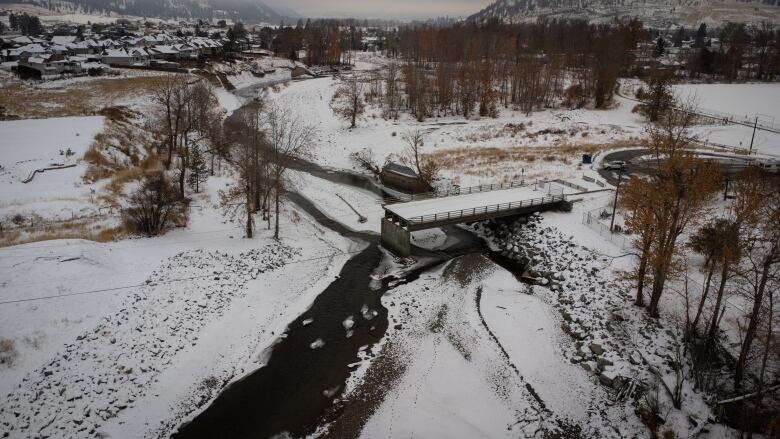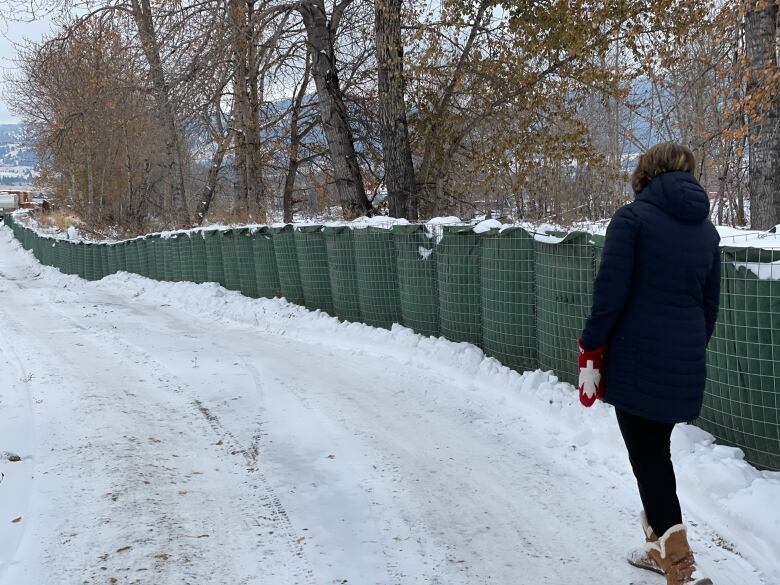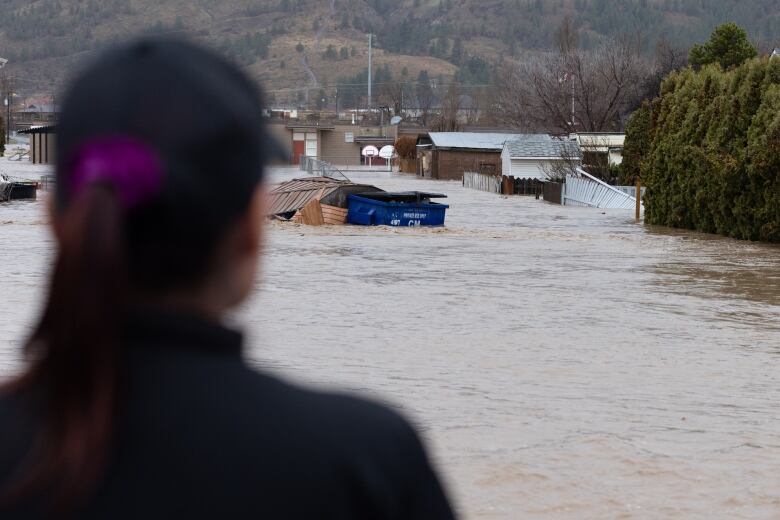A B.C. city needs $90M to protect itself from future floods. But who is willing to pay?
Funding for flood recovery provided by provincial, federal governments but not for mitigation, says city

When Sean Strang walks down the streets of the Merritt, B.C., he says people come up to him and ask if they are safe from future flooding.
And he has to tell them: no.
"If this happens again, are we protected? And we are not," Strangtold CBC News in an interview.
Strang,finance chief of the City of Merritt's Recovery Operations Centre, is part of the team that has developed a comprehensive flood recovery plantoprotect the community against future flooding disasters, following the 2021atmospheric river event that led to the city's evacuation and damaged more than600 houses, 300 of which required extensive repairs or demolition.
The only issue? No one is stepping up to pay the $90-million price tag, Strang says.
He argues the only level of government with capacity to pay for a project of this size is the federal government.
Diking work needed
In November2021, heavy rains flooded communities throughout the Interior and the Lower Mainland including Merritt,127 kilometres west of Kelowna, home to about 7,000 people.
The province declared a state of emergencyto open up resources and funding to repair thedamage.
Since then, Merritt has been working to repair local infrastructureto get people back into their homes, anddeveloping a plan to protect the city from future floods.
Joanne Street, whosehome is located in a trailer park on the banks of the Coldwater River, beside a temporary dyke set up by the military,says she would like to see a more permanent solution to feel safe.

"It's not over," Street said, standing outside of her damaged trailer.
"We are still struggling a lot of us here it's traumatic still."
Strang says their plan involves permanent diking at an estimated price tag of $90 million.
Limited funding options
While the provincial and federal governments have provided funding to build back to pre-flood levels,the moneyfor mitigation work doesn't seem available, Strang says.
He says when the city decided to applyforthe federalDisaster Mitigation and Adaptation Fund, theydiscovered the next intake had been postponed indefinitely.
And while theprovince has launched a$81.8-million program aimed at helping First Nations and municipalities prepare and adapt to climate-related flooding, that amount doesn't even cover the cost of theflood mitigation work needed in Merritt.
Emergency Management B.C. said in a statement thatitcontinues to be in talkswith the federal government, "as large scale flood mitigation projects will require cost-sharing ... to aid in community recovery efforts."
In a separate statement, Infrastructure Canada said the federal government is taking actionon climate-related disasters across the country through a number of other funding programs, and through the development of theNational Adaptation Strategy, which is being created in conjunction with provincial, territorial and municipal governments.
Since launching in 2018, more than $2.2 billion has been invested in 72 large-scale infrastructure projects across the country.

"We are investing in preparedness and resilience today, because we know climate change is making these disasters more frequent," said the statement, whichdid not address the postponement of the infrastructure grant program.
This has leftStrang with few options for funding.
"We're kind of left at this point with the federal government saying that they're not willing to fund any sort of mitigation measures all the while they're funding a lot of things in the city that reduce carbon," he said.
A potential alternative
Strang says he has been trying to put together "piecemeal" funding by applying for smaller provincial and municipal grants, but theyare not enough to coverthe amount of work Merritt needs to become flood-resilient.
"We're looking for a program that funds moving dirt [to build dikes] and buying land and it's not as sexy as the other programs that are out there, but that's what will save the town," he said.

But he hopesan alternative might offer asolution to the city's funding woes: usingMerritt as a test case.
Having done extensive research into the costs of the 2021 floods, the city is able to project how much a future flooding disaster would cost. By comparing that to the costs of infrastructure investment,the federal government could decide which projectsoffer the best value for communities.
"We will monitor this river for a period of 10, 20 years and if it floods again we can tell you that,'Hey, we just dodged a $120-million event,' because we have such good costing information," Strang said.
However, the idea hasn't had a lot of traction so far.
"We have everything that we need in terms of engineering to be able to protect ourselves," Strang said,"but we need some senior level government to step up."












_(720p).jpg)


 OFFICIAL HD MUSIC VIDEO.jpg)
.jpg)



























































































